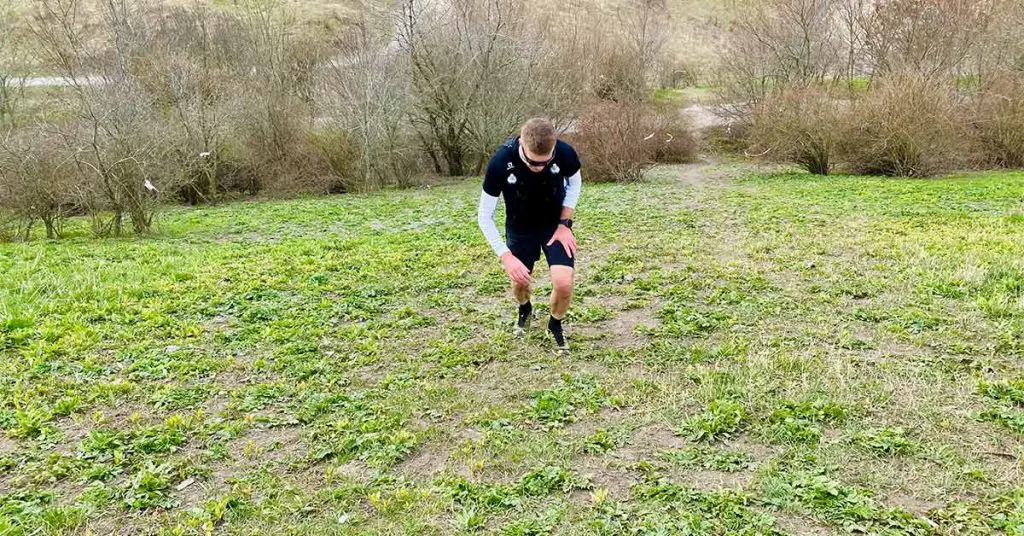Estimated read time: 3 minutes.
It’s a question that fitness enthusiasts have debated for years – does running after lifting affect muscle growth? The answer is not as clear-cut as some people might think. Many different factors come into play, such as how much weight you’re lifting and how fast you’re running. Generally speaking, though, running after lifting will help to increase muscle mass.
What Is the Purpose of Running After Lifting
The main purpose of running after lifting is to improve your cardiovascular fitness. When you lift weights, your heart rate increases, and you breathe more heavily. Running after lifting helps to increase your heart rate even further and gets your blood flowing around your body. This increased blood flow is beneficial for muscle growth as it delivers oxygen and nutrients to the muscles.
How Does Running After Lifting Affect Muscle Growth?
There are several ways in which running after lifting can affect muscle growth:
- It can help to increase the amount of weight you can lift. This is because running provides a form of active recovery that helps to reduce fatigue levels.
- Running after lifting can help improve your muscles’ quality by increasing blood flow and delivering oxygen and nutrients to the muscles.
- Running after lifting can help increase your muscles’ size by stimulating muscle growth.
Running After Lifting Reduces Doms (Delayed Onset Muscle Soreness)
One of the main benefits of running after lifting is that it can help to reduce DOMS (Delayed Onset Muscle Soreness). This is the pain and stiffness you often feel in your muscles 24-48 hours after a workout. A study found that DOMS was considerably reduced in athletes who engaged in 20 minutes of moderate-intensity aerobic activity after a strength training session.
How Fast Do You Need to Run For It to Be Effective?
There is no definitive answer to this question as it depends on a number of factors, such as your fitness levels and how much weight you’re lifting. However, a general rule of thumb is to aim to run at a pace of around 50-60% of your maximum speed. This should help to increase your heart rate and get your blood flowing around your body.
How Long Should You Run For?
Again, this will depend on several factors, but most experts recommend running for 20-30 minutes after lifting weights. This will give your body enough time to recover from the weightlifting session and allow the increased blood flow to deliver oxygen and nutrients to the muscles.
Are There Any Risks Associated With Running After Lifting?
A few risks are associated with running after lifting, such as the risk of injury. It’s important to warm up properly and start slowly, gradually increasing your speed as your body warms up. It’s also important to listen to your body and stop if you start to feel any pain or discomfort. Overall, though, the risks are relatively low, and running after lifting can be an effective way to improve muscle growth.
Don’t Run After Every Strength Training Session
While running after lifting can be beneficial for muscle growth, giving your body ample time to recover is important. This means that you shouldn’t run after every strength training session. Instead, aim to run around three times per week, allowing your body to rest and recover in between runs. This will help to maximize the benefits of running and reduce the risk of injury.
Schedule Your Post-workouts on Non-leg Days
If you’re looking to maximize the benefits of running, it’s important to schedule your post-workout runs on non-leg days. This will help to avoid overtraining your legs and allow your muscles to recover properly.
The Bottom Line – Does Running After Lifting Affect Muscle Growth?
Yes, running after lifting does affect muscle growth. But, the effect is not as clear-cut as some people might think. Many different factors come into play, such as how much weight you’re lifting and how fast you’re running.
If you’re looking to maximize your muscle growth, it’s important to pay attention to all the different variables at play. But if you’re just looking for a general idea of whether or not running after lifting is beneficial, then the answer is yes – it definitely can be!
FAQ
Can I run before lifting weights?
It’s generally not recommended to run before lifting weights. This is because running can fatigue your muscles, leading to a decrease in performance when lifting weights.
How long should I wait to run after lifting?
There isn’t necessarily a “right” answer to this question. It ultimately depends on how your body feels and how quickly you recover from your weightlifting session. Generally speaking, it’s best to wait at least 15-30 minutes before going for a run.
What are the benefits of running after lifting weights?
Running after lifting weights can help to increase muscle mass. It can also improve your cardiovascular endurance and help you burn more calories.
Do I need to run every day after lifting?
No, you don’t need to run every day after lifting weights. In fact, doing too much running can lead to overtraining and decrease your gym performance. It’s important to strike a balance and listen to your body, so you don’t do too much or too little.
- How Many Laps Around a Track is a 5K: Your Guide - October 22, 2023
- When is Track and Field Season? - October 22, 2023
- Understanding the Length: How Long Is a Running Track? - October 22, 2023



